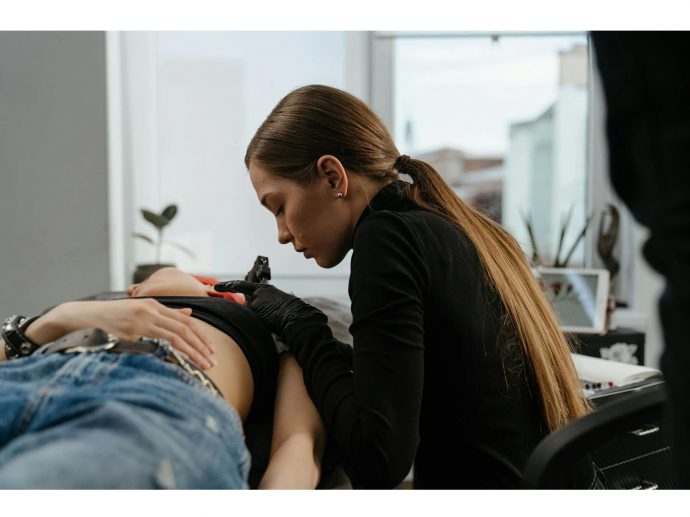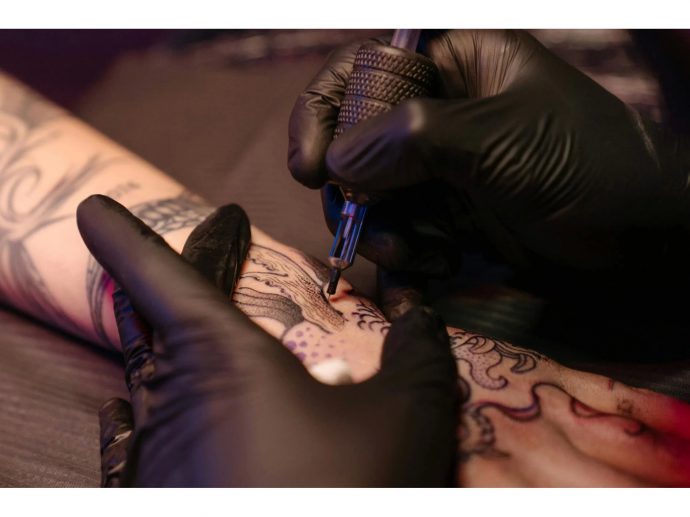Categories more
- Adventures (17)
- Arts / Collectables (15)
- Automotive (37)
- Aviation (11)
- Bath, Body, & Health (77)
- Children (6)
- Cigars / Spirits (32)
- Cuisine (16)
- Design/Architecture (22)
- Electronics (13)
- Entertainment (4)
- Event Planning (5)
- Fashion (46)
- Finance (9)
- Gifts / Misc (6)
- Home Decor (45)
- Jewelry (41)
- Pets (3)
- Philanthropy (1)
- Real Estate (16)
- Services (23)
- Sports / Golf (14)
- Vacation / Travel (60)
- Watches / Pens (15)
- Wines / Vines (24)
- Yachting / Boating (17)
Opening a Tattoo Shop? 5 Key Factors to Consider
Published
05/08/2024A tattoo shop is found almost everywhere – right from big cities or small towns, they are becoming increasingly popular. After all, there’s a reason why about 225 million in the world today have at least one tattoo.
However, becoming a tattoo artist and running your shop successfully is much more than what meets the eye.
It takes a lot of determination, planning, and patience to become a big-shot tattoo artist. If you’re planning to open a tattoo shop, read this think piece carefully!
1. Start with a course first
No matter how much you think you know about tattoos, it’s always wise to go for a formal course. Tattooing customers is a sensitive deal, especially since you’ll be dealing with the human body.
Taking an apprentice course or simply joining a crash course on tattooing can help you learn about the industry and how tattooing works.
If you open up a shop right after watching a few YouTube tutorials, nobody will see you as a credible artist. You can even partner up with an existing studio and see how their business works.
This will help you identify the challenges before you take the fly on your own.
2. Make a list of expenses
Once you feel that you have enough experience and would like to open your shop, it’s time to get your finances straight. For this, you’ll have to make a comprehensive list of expenses.
Make sure to include all kinds of expenses, including the cost of the machinery and inks required, hiring additional staff, and decorating the studio. If you plan on spending your savings, you should have a minimum of $5000-10,000 for the initial investment.
Later on, you might need to spend about $30,000 or so to cover the other expenses, including electricity and water bills. Create a list and make a timeline that will tell you how to secure the funds in definite milestone steps.
3. Pay attention to your shop
How your shop looks and feels is a major determining factor of your success, So, once you’ve calculated the fixed costs, such as that of rent, electricity, water, and other raw materials, you have to focus on the interiors of the shop and where you want it to be located.
For example, a trendy upscale area might drive in more visitors but you’ll also have to pay hefty rent. On the other hand, the kind of machinery you use for tattooing will also be important.
You can draw up tattoo designs from plasma DXF files or use special AI-powered platforms to show 3D prints to the customer. You can either sterilize the machines manually or use an autoclave. Every item you plan to have in your shop will have its own cost and require a budget.
4. Market your shop
Even before you actually open the shop, you have to market it well. Remember, marketing isn’t easy and if you haven’t been exposed to the tattoo industry previously, it’ll take you some time to understand how it works.
However, proper marketing can drive in dozens of customers right on your first day. If you’re short of funds, try to go with word-of-mouth marketing. Create pages on social media platforms like Facebook, Twitter, Instagram, and Snapchat.
Since your target audience will mostly be teenagers and young and middle-aged adults, produce content that they’re likely to see. You can even print out professional-looking business cards and distribute them to your loved ones.
5. Be careful of taxes and health checks
When you’re dealing with human health and their bodies, you need to be extra careful. To open your shop and run it properly, you have to understand the local and national health codes of that area.
There are often random and unannounced health checks by health officers, so you always have to make sure that your shop follows the health regulations and maintains hygiene.
When it comes to taxes, do them properly and pay them off in time to avoid late fees and legal issues. This will not only improve your credit score but also allow you to take large loans in the future.
Conclusion
While opening a tattoo shop can be incredibly fun and exciting, you must keep in mind the above-mentioned things to ensure a smooth business. Other than that, keep honing and upskilling your art.
















